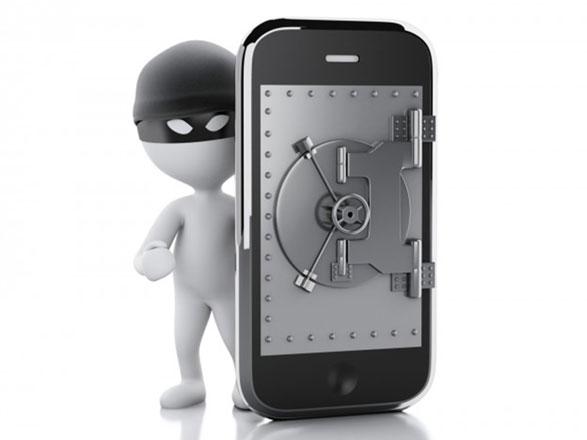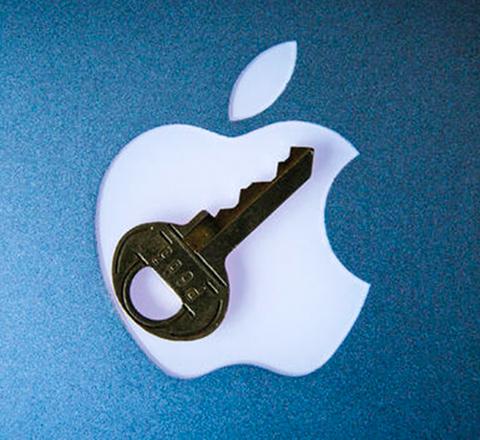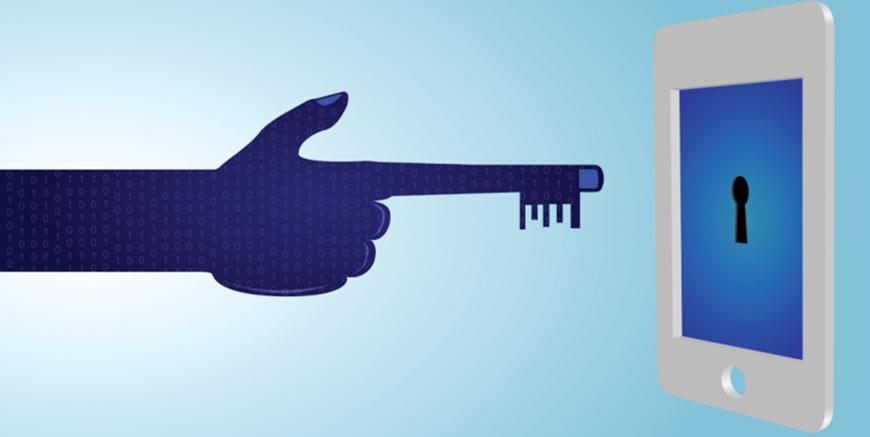You are here
Shadowy hacking industry may be helping FBI crack an iPhone
By AP - Mar 26,2016 - Last updated at Mar 26,2016

Photo courtesy of blog .avira. com
NEW YORK — Turns out there’s a shadowy global industry devoted to breaking into smartphones and extracting their information. But you’ve probably never heard of it unless you’re a worried parent, a betrayed spouse — or a federal law enforcement agency.
Now one of those hacking businesses may well be helping the Federal Bureau of Investigation (FBI) try to break into the iPhone of one of the San Bernardino killers.
Late Monday, the FBI abruptly put its legal fight with Apple on hold, announcing that an “outside party” had come forward with a way to unlock the phone. If it works, it could render Apple’s forced cooperation unnecessary.
The announcement has thrown a spotlight on a group of digital forensic companies, contractors and freelance consultants that make a living cracking security protections on phones and computers. In effect, they’re legally exploiting software and hardware flaws in products.
Success can mean big bucks and recognition in their field. But most of the companies keep a very low profile. Since the bulk of their business is with governments and law enforcement, there’s no reason to for them to market themselves to companies or regular people. In addition, it’s in their interest to keep exactly what they do under wraps, said Christopher Soghoian, principal technology expert for the ACLU.
“The companies won’t share their secrets. It’s their special sauce,” Soghoian said. “And they certainly won’t tell Apple how they’re doing what they’re doing.”
For the moment, no one outside the justice department appears to know who the FBI’s white knight is. A great deal of speculation centres on Cellebrite — an Israel-based forensics firm that says it does business with thousands of law enforcement and intelligence agencies, militaries and governments in more than 90 countries — though it remains one of several possible candidates. A company spokesman declined to comment.
Cellebrite, founded in 1999, has contracts with the FBI dating back to at least 2013. It signed a separate $15.3 million deal with the FBI on Monday, according to government records. The firm makes devices that allow law enforcement to extract and decode data such as contacts, pictures and text messages from more than 15,000 kinds of smartphones and other mobile devices.
It also makes commercial products that companies can use to help their customers transfer data from old phones to new ones. Apple even uses Cellebrite devices in some of its stores.
In the cybersecurity arms race, Apple has managed to stay ahead of these forensic companies. Cellebrite’s website says its commercial tools work with iPhones running older operating systems, including iOS 8, but not the latest version, iOS 9, which is on the San Bernardino phone.
Of course, it’s possible that one of these companies has made a breakthrough.
“Anything is crackable — it’s just how much time do you have and how much money do you have to spend,” said Jeremy Kirby, sales director at Susteen, a Cellebrite competitor in Irvine, California, that says it’s not the FBI’s outside party.
Susteen started as a software developer that made tools for cellphone companies. Kirby said his firm began developing forensic products for law enforcement about 10 years ago, after the FBI asked it to produce a tool that could preserve cellphone data for criminal investigations.
Now the company says its products are used by the defence department and hundreds of law enforcement agencies nationwide. It also sells a less powerful data extraction tool for consumers who want to check up on their kids or spouses by seeing their text messages, e-mails, smartphone photos and even deleted files.
Forensic companies maintain their own research staffs that probe target devices for weak spots, but for tough jobs, they sometimes turn to freelance hackers, some of whom will work for the highest bidder.
“What we’re seeing now is what you can’t do for yourself, you can buy,” said Zuk Avraham, founder of the mobile security firm Zimperium, which seeks to defend phones against hacking.
Inspired by the FBI-Apple stand-off, Rook Security, an Indianapolis-based cybersecurity firm that works with law enforcement, formed an expert team devoted to creating a copy of an iPhone’s flash memory , hoping a backup would allow investigators to restore data that could be wiped out after too many wrong password guesses.
Many security researchers think that might work, though no one has announced success or demonstrated it on an iPhone running iOS 9 or higher.
Avraham said he has no doubt the San Bernardino iPhone can be hacked.
“It’s only a matter of time and resources,” he said. “We have seen so many times when security researchers claim something to be impossible. They’re proven wrong over time.”
Related Articles
SAN FRANCISCO — Can the FBI force a company like Apple to extract data from a customer’s smartphone?
WASHINGTON — The extraordinary legal fight pitting the Obama administration against technology giant Apple Inc.
NEW YORK — Suppose Apple loses its court fight with the FBI and has to produce a software tool that would help agents hack into an iPhone —


















